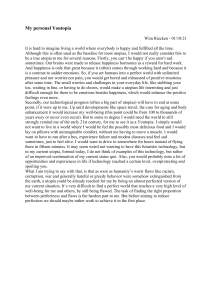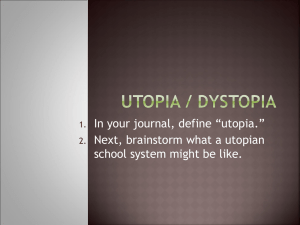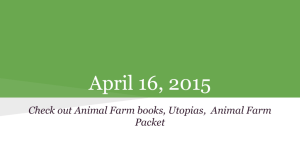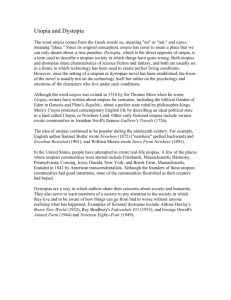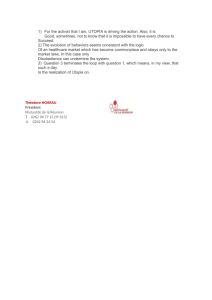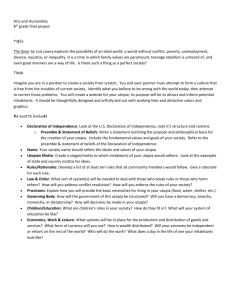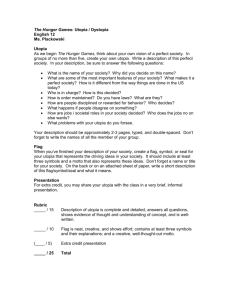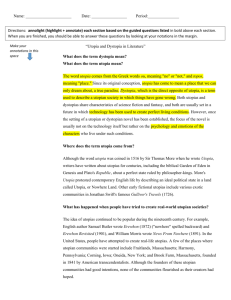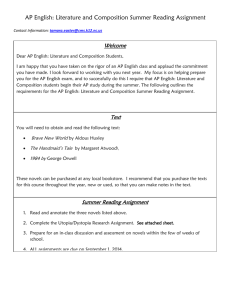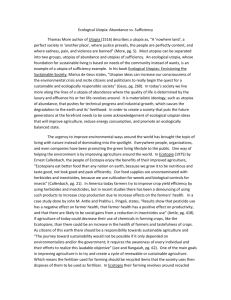HL4023 - School of Humanities and Social Sciences
advertisement
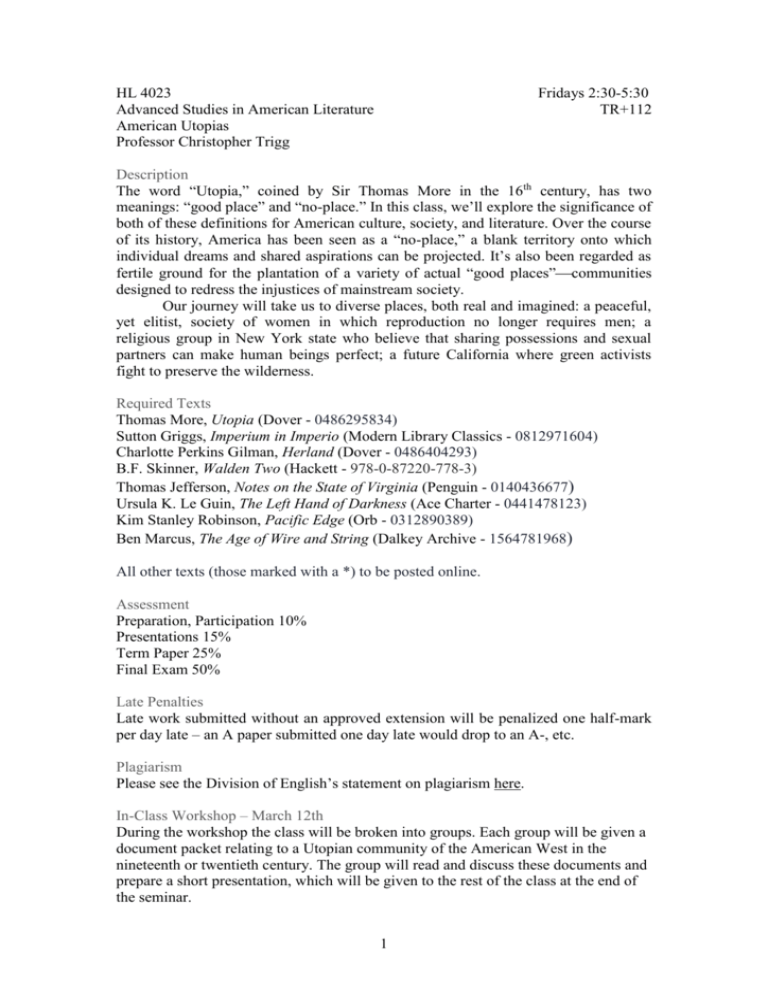
HL 4023 Advanced Studies in American Literature American Utopias Professor Christopher Trigg Fridays 2:30-5:30 TR+112 Description The word “Utopia,” coined by Sir Thomas More in the 16th century, has two meanings: “good place” and “no-place.” In this class, we’ll explore the significance of both of these definitions for American culture, society, and literature. Over the course of its history, America has been seen as a “no-place,” a blank territory onto which individual dreams and shared aspirations can be projected. It’s also been regarded as fertile ground for the plantation of a variety of actual “good places”communities designed to redress the injustices of mainstream society. Our journey will take us to diverse places, both real and imagined: a peaceful, yet elitist, society of women in which reproduction no longer requires men; a religious group in New York state who believe that sharing possessions and sexual partners can make human beings perfect; a future California where green activists fight to preserve the wilderness. Required Texts Thomas More, Utopia (Dover - 0486295834) Sutton Griggs, Imperium in Imperio (Modern Library Classics - 0812971604) Charlotte Perkins Gilman, Herland (Dover - 0486404293) B.F. Skinner, Walden Two (Hackett - 978-0-87220-778-3) Thomas Jefferson, Notes on the State of Virginia (Penguin - 0140436677) Ursula K. Le Guin, The Left Hand of Darkness (Ace Charter - 0441478123) Kim Stanley Robinson, Pacific Edge (Orb - 0312890389) Ben Marcus, The Age of Wire and String (Dalkey Archive - 1564781968) All other texts (those marked with a *) to be posted online. Assessment Preparation, Participation 10% Presentations 15% Term Paper 25% Final Exam 50% Late Penalties Late work submitted without an approved extension will be penalized one half-mark per day late – an A paper submitted one day late would drop to an A-, etc. Plagiarism Please see the Division of English’s statement on plagiarism here. In-Class Workshop – March 12th During the workshop the class will be broken into groups. Each group will be given a document packet relating to a Utopian community of the American West in the nineteenth or twentieth century. The group will read and discuss these documents and prepare a short presentation, which will be given to the rest of the class at the end of the seminar. 1 Schedule 1. 15th January America and Utopia: New Worlds Thomas More, Utopia, part one 2. 22nd January The Meaning of Utopia Thomas More, Utopia, part two Richard Rorty, “Private Irony and Liberal Hope”* Unit A: Social Utopias 3. 29th January “The Race Problem” Sutton E. Griggs, Imperium in Imperio 4. 5th February A Feminist Utopia Charlotte Perkins Gilman, Herland 5. 12th February “A Social System that Really Works” B.F. Skinner, Walden Two 6. 19th February The American Revolution Thomas Jefferson, “Declaration of Independence.”* ---, Notes on the State of Virginia Unit B: Religious Utopias 7. 26th February The Oneida Perfectionists Spencer Klaw, Without Sin* Recess ---------------------------------------------------------------------------------------------8. 12th March In-Class Workshop: Utopian Communities of the American West 9. 19th March Scientology Lawrence Wright, “The Apostate”* Paul Thomas Anderson, The Master (film screened in class) 25th March – Good Friday – no class 2 Unit C: Science Fiction Utopias 10. 1st April Beyond Gender Ursula K. Le Guin, The Left Hand of Darkness 11. 8th April An Ecotopia Kim Stanley Robinson, Pacific Edge 12. 15th April A Utopia of Things Ben Marcus, from The Age of Wire and String David Rose, from Enchanted Objects 3

